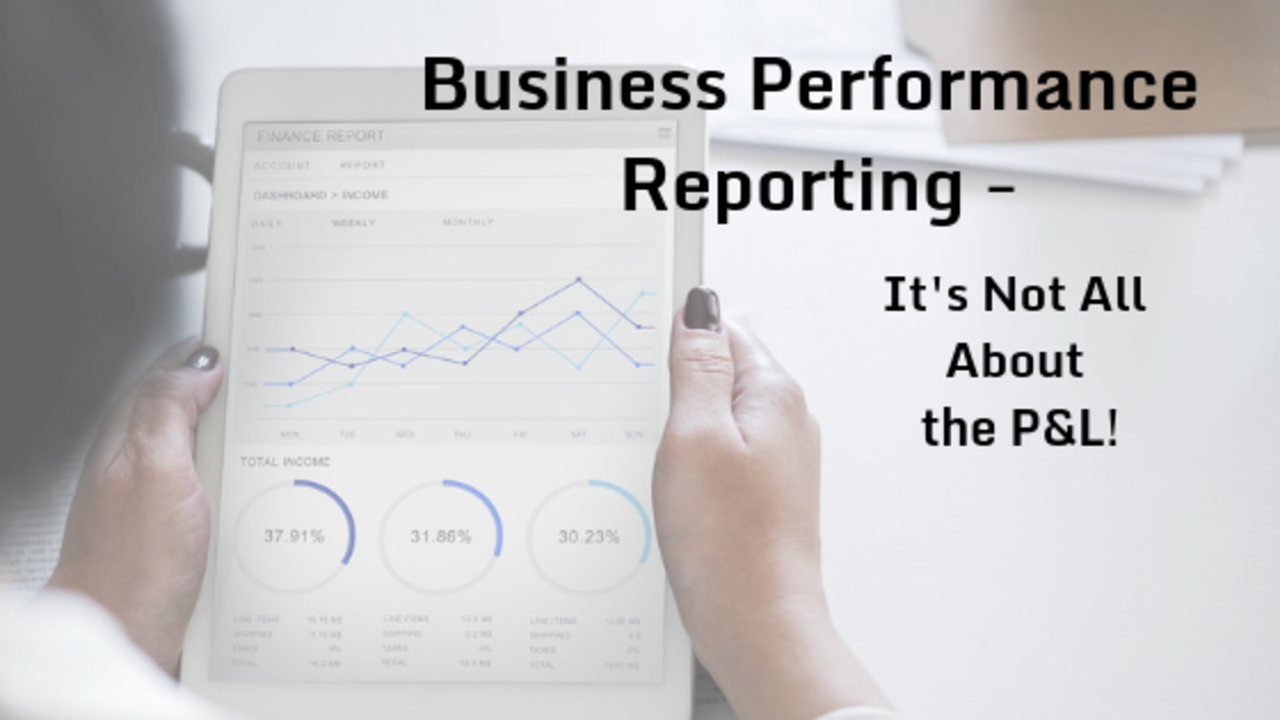How to work with the business as a Finance Business Partner

By Andy Burrows
The Marketing Director of a business I worked for a long time ago said in leading a seminar, words to the effect that, “functions like Finance, HR and IT are just overhead costs. They don’t add value. They don’t bring in new business or sell anything, and they don’t produce anything.”
I didn’t respond at the time, but I remember being quite offended. I felt put down, saying that I was no value to the business.
I was, at the time, I have to say, fairly naïve – this was not long after I’d started my first job outside of public practice.
What follows here are some of my reflections on the relationships between the Finance function and the other parts of a business, from working in more than thirteen different companies over more than twenty years since then.
“Business Partner” – a misleading phrase?
One thing that has vexed my pedantic brain occasionally over the years is the use of the term “business partner” to describe certain roles within functions that support a...
Don’t make this one mistake in your Finance Transformation

By Andy Burrows
Finance Transformation programmes will often include something like the following line in their business case: “Capacity created by automation and process efficiency will be reinvested in value-adding activity.”
Sounds great, doesn’t it? What could possibly be wrong with that?
Well, as an aspiration, it’s got a lot going for it. The trouble is, no one really believes it and it hardly ever happens. In fact, the opposite often happens. The capacity created is turned into cost savings, which leave even less time for “value-adding” activity than before.
So, if you really want a value-adding Finance function, don’t let your Finance Transformation programme become all about cost savings. And be clearer on how Finance adds value.
Automation is a good thing
First, lest you misunderstand me, let me say that automation and process efficiency are good things.
When I look back on the revolution caused by computerisation 20-30 years ago, I was eager to see how the new technol...
What’s driving the trajectory of the CFO role?

By Andy Burrows
Let’s talk about how and why the role of the CFO has changed over the last 30 years, and why that puts Finance in a critical position within the business.
You know, ever since I qualified as an accountant in 1995, I’ve noticed magazine articles, courses, seminars, books, all talking about the changing role of the CFO (or Finance Director as we used to call it).
And I’ve always been a bit cynical. I didn’t really know what it was all about until I sat and thought about it recently.
You see, I think there’s a misunderstanding in the media, even in the financial press, about what is driving any changes in role, if there are any.
The media portrays the CFO’s role changing because of Finance technology. In the past it was all about EPM (Enterprise Performance Management), BI (Business Insight) and ERP. Nowadays it’s all about RPA (Robotic Process Automation), AI (Artificial Intelligence) and Blockchain, apparently – you can’t get through a Finance publication without me...
It’s time to take an Amazonian approach to technology in Finance

By Andy Burrows
With all the scare stories about “robots taking our jobs”, it’s easy to get the impression that we’d rather have robots doing jobs because they’re better than us.
Recently, I had to do a 2-minute presentation on the subject of why Finance should pursue automation opportunities. And I was given a PowerPoint slide with 10 or so bullet points full of buzzwords, telling how automation can reduce cost, improve customer satisfaction, improve consistency and traceability, support strategic platform upgrades and accelerate innovation, amongst other things.
Even my own eyes glazed over as I started to talk it through, so I cut to the real point.
Forget the buzzwords!
Forget the buzzwords. Humans are better than robots!
Robots don’t have intelligence.
Robots don’t interpret anything.
Robots don’t take action on information.
Robots don’t make strategies.
Robots don’t care if they win or lose.
Robots do:
Do repeatable, programmable, computer-based tasks…
On time…
Ever...
Out with the old (resolutions), in with the new (intentions)

By Talita Ferreira
I no longer set New Year’s resolutions. I think it is far better to set intentions.
If we follow the latest developments in neuroscience, we can rest assured that our brain, if used correctly, can be a very powerful tool. Although, we currently only use a fraction of its capability and get caught up in the noise of our self-doubts, limiting beliefs and repeat dialogues.
Setting an intention is key to bringing about a change or a desired state or goal. The various synonyms for intention are purpose, aim or plan. Setting intentions can play a key role in activating our subconscious mind to help bring about a goal or desired result. The word ‘intent’ originated from the Latin word ‘intendere’, which means to stretch towards.
My first encounter with intention was a few years ago when I read the book ‘Synchrodestiny’ by Deepak Chopra. I was trying to find my purpose in life. I knew I wanted to leave corporate life but had no idea what type of business I wanted to...
Thinking Strategically About Finance Transformation

By Andy Burrows
Finance Transformation should be thought of as a strategy. I get the impression that we don’t think of Finance Transformation like that. We tend to think that the business has a strategy, and functions like Finance just do “transformation” programmes.
I’ve argued in the past that, generally speaking, the CFO’s strategic blind spot is the Finance function itself. In another article, I suggested that CFOs are spending too much time business partnering, so that they don’t give enough strategic thought to the Finance function.
So, this article is all about how we can be strategic about Finance Transformation. In fact, as I said at the beginning, it’s more than that. We ought to think of Finance Transformation as the vehicle for Finance function strategy.
Thinking about strategy makes a difference
My definition of strategy is that, “strategy is a plan of action to achieve an aspiration or overcome a problem.” And Finance Transformation is just that.
Well, no one can ar...
Next Generation Finance Skills - a business and personal challenge

By Andy Burrows
What are the skills needed for Finance in business in the next generation? One of the biggest current challenges for the Finance and Accounting profession, the individual Finance professional, and Finance functions in general, is around skills.
It’s not just a problem of what skills are needed for the future. But whose responsibility is it to create the career pathways, the learning opportunities, and to ensure the right skills, mindsets and behaviours, prevail?
In an earlier article, I looked at what’s really happening in Finance in the realm of automation and technology. I argued that it need not be all about RPA and AI, as the media and software companies would have you believe. There are plenty of other tools we already have in the toolbox, some are more robust and stable, and some are much lower cost. Automation isn’t new in Finance, and RPA is just the new kid on the block (and that would make AI a babe in arms!).
But what I want to point out in this article i...
Please can we stop saying that the future of Finance is all about RPA and AI! It’s not!

By Andy Burrows
So much ink has been spilled about the impact of technology and automation in Finance – RPA and AI and the like - that it’s starting to get a bit tedious. From reading all this stuff, anyone would think that there’s a robot army lining up to make us all redundant! And it’s written as if it’s at the forefront of everyone’s minds in Finance.
On the ground, in the real world of Finance in real world business, it’s not like that!
And we all know deep down that it’s hype! Who sponsors the conferences and the accountancy publications and the webinars that are spouting this stuff? The software vendors!! There’s a vested interest in inflated claims and understated costs/risks.
And yet it feels like the whole Finance and Accounting industry looks down on you if you’ve never heard of RPA, haven’t got a cloud ERP project planned, or you’re not talking about analytics and predictive modelling.
What we need is a balanced analysis of the issues involved, in order to make an info...
Business Performance Reporting - It's Not All About the P&L!

By Andy Burrows [originally published September 2016]
If you are going to be successful in managing your business, you need measurement. You need facts that tell you how well you are doing and where you need to improve.
And those measures of success are much broader than just financial measures, such as profit, cash, margins, etc, however important they are.
How do you make sure that your business is heading in the right direction? How do you make sure that your strategies are working? How can you even tell if your strategies are being implemented correctly?
Is profit the only measure of success? Does profit tell you anything about whether you are achieving your vision?
Let’s say my vision was to become number 1 in a particular market. How would I know how close I was to achieving that? Not by looking at my profit in isolation.
And just asking that question leads to other useful questions that clarify what I am aiming at. For instance, what does becoming number 1 mean? Number 1 f...
5 Ways that CFOs Can Radically Improve the Effectiveness of Exec Meetings

By Andy Burrows, 22 October 2018
During my career, I’ve sometimes worked at the top level in Finance, and had the privilege of sitting alongside other functional heads in the “Senior Management Team” or “The Exec”, or even “The Board of Directors”.
Obviously one of the chief ways we stayed in touch with each other, and with what was going on, was to have “Management Meetings” on a regular basis. Normally, the main meeting would be once a month, centred around the management accounts. And sometimes we would also have weekly, less formal meetings.
When you’re more junior, you see the FD or the CFO going off to these meetings. And you have a picture in your mind of what goes on. You picture high powered discussions, with quality arguments and analysis, talking strategy and making sensible decisions.
The reality is often quite different. The meetings are often frustrating, boring and nowhere near as useful as they should be. Discussions over “matters arising” or “actions brought forwar...





